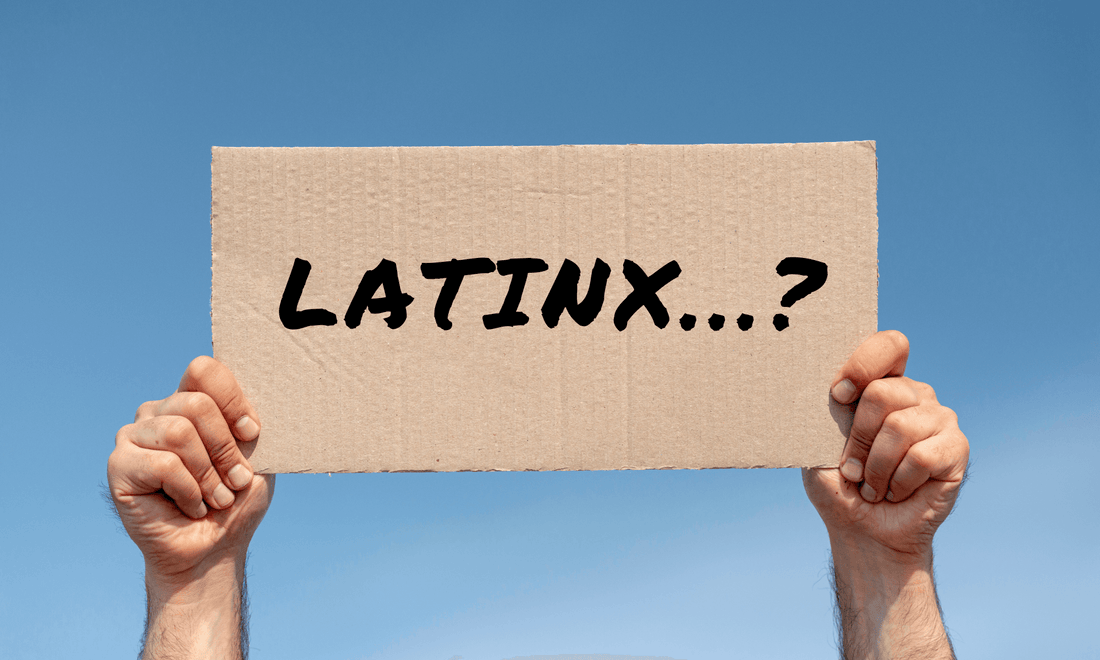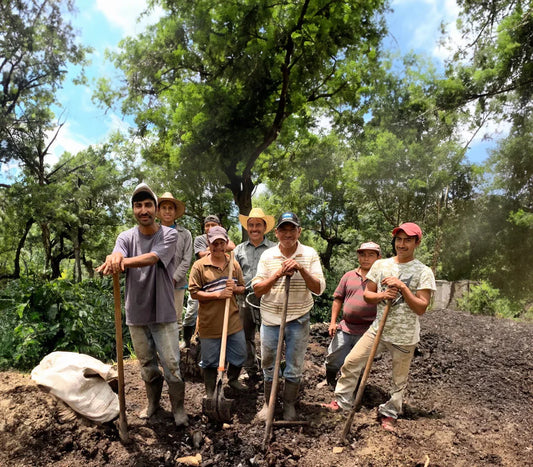
Navegando la conversación: el uso del término “latinx”
La evolución es fundamental para el lenguaje. A medida que el mundo cambia, también debe cambiar el lenguaje para poder cumplir con precisión su función. Sin embargo, el lenguaje es poderoso: puede influir en nuestra percepción del mundo y de las personas que lo habitan. Por eso, no es de extrañar que algunas incorporaciones a nuestro léxico puedan suscitar controversias y debates.

¿Por qué el término Latinx es controversial?
El término Latinx surgió a principios del siglo XXI y, según se informa, se utilizó por primera vez en línea en 2004 (Universidad de Colorado). Sus defensores sostienen que ofrece una alternativa neutra en cuanto al género a los términos tradicionales de género como "latino" o "latina", lo que desafía la masculinidad inherente del idioma español. Sostienen que "Latinx" crea un espacio inclusivo para las personas que se identifican fuera del binario de género.
Sin embargo, los críticos del término suelen destacar la desconexión entre "latinx" y las raíces lingüísticas del español. Como el español es una lengua con género, sostienen que imponer conceptos no nativos en la lengua socava su importancia cultural. Algunos también sostienen que el término es un producto de la influencia occidental y no respeta las tradiciones lingüísticas y culturales de las poblaciones hispanohablantes. Comprender y respetar las diversas perspectivas es clave para abordar esta controversia: en lugar de etiquetar el término como inherentemente racista, entablar un diálogo abierto y promover la inclusión puede conducir a un debate más constructivo sobre la representación lingüística.
¿Qué piensan los latinos sobre el término Latinx?
A pesar de su aparente popularidad en los círculos académicos de EE. UU., las encuestas indican que la mayoría de los hispanos y latinos no se identifican con el término "Latinx" y prefieren descripciones de género tradicionales.
Ana M. Flores, una destacada autora latina, afirma que "el lenguaje es portador de nuestra historia y nuestras luchas. Borrar términos de género sin comprender sus raíces puede llevar a una dilución de nuestra herencia cultural".
Por lo tanto, el conflicto dentro de la comunidad surge desde dentro: la naturaleza inherentemente sexista de la lengua y la forma en que la implementación de un cambio puede potencialmente socavar la esencia histórica de la lengua y la tradición. Dicho esto, es fundamental considerar estos cambios como un intento de incluir a personas que tradicionalmente han sido marginadas y excluidas de la comunidad.

Interseccionalidad y representación
Los defensores del uso del término "Latinx" destacan que no solo desafía las normas de género, sino que también fomenta la inclusión de las personas que se identifican como LGBTQ+. El término tiene como objetivo proporcionar una etiqueta más abarcadora, garantizando que se reconozcan y respeten las diversas experiencias de nuestra comunidad.
Aunque los críticos sostienen que el término puede pasar por alto la diversidad cultural dentro de las comunidades hispanas y latinas. Por ejemplo, en un estudio realizado por el Pew Research Center, solo el 23% de los adultos hispanos estaban familiarizados con el término "Latinx" en los Estados Unidos, y la cifra es incluso menor en América Latina: apenas un 3%. Esto sugiere una desconexión entre el término y la comunidad más amplia que pretende representar, especialmente al sur de la frontera.
Y, al imponer una etiqueta que lo abarque todo, algunos sostienen que el término puede borrar inadvertidamente identidades e historias culturales distintivas, logrando así exactamente lo opuesto a su propósito original.
La activista Erika L. Sánchez expresa: "El poder del lenguaje radica en su capacidad de reflejar y honrar nuestras experiencias vividas. Es importante recordar que el término 'latinx' no resuena con todo el mundo y debemos respetar esa diversidad de perspectivas".

Un camino hacia una mayor inclusión
Los partidarios del término "Latinx" sostienen que este ofrece una oportunidad para desafiar las desigualdades sistémicas y fomentar una mayor inclusión. Al ampliar el lenguaje y participar en debates sobre la identidad, creen que la sociedad puede crear un futuro más equitativo.
Los críticos señalan con frecuencia que centrarse únicamente en el lenguaje puede desviar la atención de los problemas sociales más urgentes que afectan a las comunidades hispanas y latinas. Argumentan que el énfasis debería ponerse en abordar las disparidades económicas, el acceso a la educación, la atención médica y la justicia social, en lugar de los debates lingüísticos.
La académica Dra. Daisy Verduzco Reyes cree que "si bien el lenguaje es importante, es esencial que prioricemos los cambios materiales y estructurales necesarios para empoderar a nuestras comunidades".
El debate en torno al uso del término “latinx” es matizado y refleja la complejidad de la identidad y las intersecciones entre el lenguaje, la cultura y la justicia social. A medida que la sociedad avanza, el desafío radica en encontrar un equilibrio que reconozca y respete las diversas perspectivas y experiencias dentro de las comunidades hispanas y latinas.


